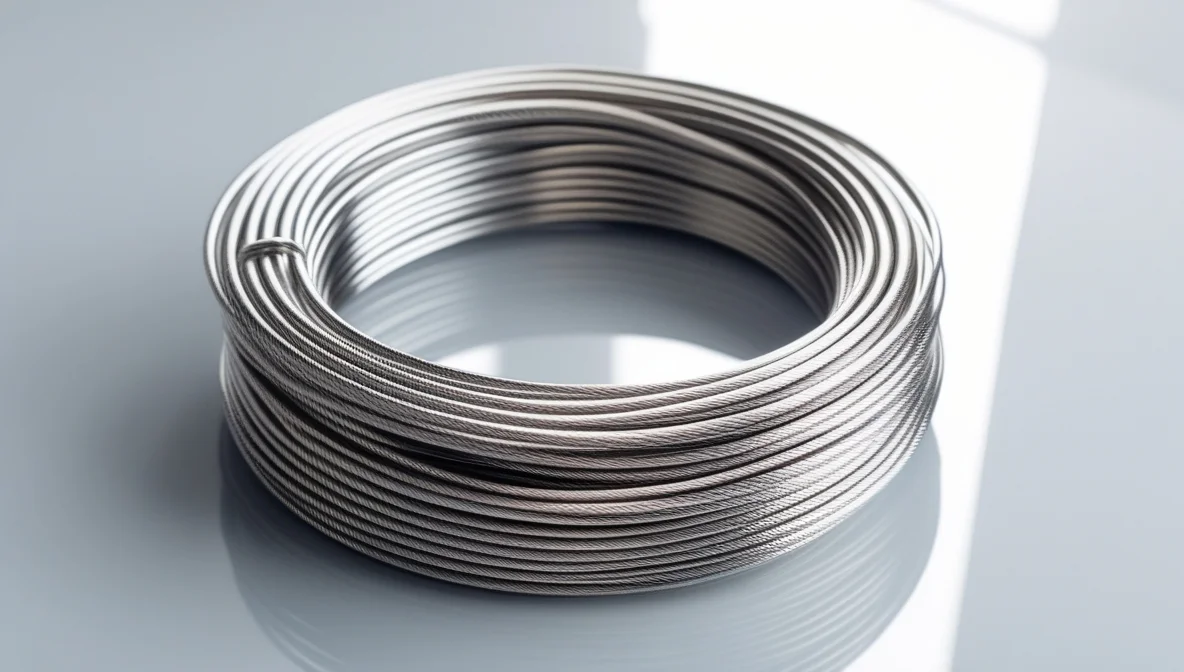The “best” stainless steel for springs depends heavily on the specific application requirements, particularly regarding corrosion resistance, temperature, strength, and cost.


Here’s a breakdown of commonly used stainless steel grades for springs:
- AISI 302/304 (Austenitic): These are the most common and cost-effective stainless steel spring materials. They offer excellent corrosion resistance in many environments and good strength when cold worked. Type 302 was traditionally preferred, but Type 304 is often used interchangeably due to availability and similar properties in the spring temper condition. Ideal for general-purpose springs where moderate corrosion resistance is sufficient.
- AISI 316 (Austenitic): Offers superior corrosion resistance compared to 302/304, especially against chlorides and marine environments, due to the addition of molybdenum. It’s chosen when higher resistance to pitting and crevice corrosion is needed. It also maintains strength well at moderately elevated temperatures. Typically more expensive than 304.
- 17-7PH (Precipitation Hardening): This grade offers significantly higher strength and hardness compared to the 300 series austenitic grades, approaching the strength of carbon steel spring wires while retaining good corrosion resistance (generally better than 302/304 but less than 316). It achieves its properties through heat treatment (precipitation hardening) after forming. Excellent for high-stress applications or where minimal size/weight is crucial. It also performs well at higher temperatures (up to ~650°F or 343°C).
Comparison Summary:
| Grade | Strength | Corrosion Resistance | Cost | Typical Use Case |
|---|---|---|---|---|
| 302/304 | Good | Good | Moderate | General Purpose, Food/Medical |
| 316 Stainless Steel | Good | Excellent (esp. chlorides) | Higher | Marine, Chemical Processing, Medical |
| 17-7PH | Very High | Good | High | High Stress, Aerospace, Elevated Temp |
Ultimately, Type 302/304 is often the best balance for general use, Type 316 is best for corrosive environments, and 17-7PH is best for high-strength and higher-temperature spring applications.
What is the best stainless steel for springs? — This article provides a practical buyer‑focused overview with specifications, selection tips, and on‑site considerations. Explore related topics: blog.
Key Specifications and Standards
- Standards: ASTM / EN / JIS (e.g., ASTM A240/A36, EN 10088/10025, JIS G4304/G3131).
- Surface options: 2B, BA, No.4, HL, mirror; galvanized (electro / hot‑dip).
- Processing: hot‑rolled, cold‑rolled, annealed & pickled, welded or seamless.
- Typical services: slitting, shearing, cut‑to‑length, drilling, beveling, deburring.
- Documentation: MTC, CO, packing list with net/gross weight and heat numbers.
Typical Applications
Construction, machinery, automotive, energy, enclosures and fencing, food equipment (for stainless), and general fabrication. Match grade and finish to corrosion, strength, and appearance requirements.
Selection Guide
- Use certified material with Mill Test Certificate (MTC).
- Confirm standards (ASTM/EN/JIS) and tolerances per drawing.
- Match surface finish to application (2B/BA/No.4/galvanized).
- Specify dimensions and acceptable deviation upfront.
- Plan packaging and corrosion protection for transit.
Processing, Packaging and Logistics
We adopt edge protection, waterproof wrapping, rust‑inhibiting paper, fumigated pallets, and strapping suitable for sea freight. Loading photos and weight lists are provided for each shipment.
FAQs
Q: What lead time can I expect?
A: Typically 7–15 days ex‑works for standard sizes; custom processing may extend the schedule.
Q: Can you provide cut‑to‑size service?
A: Yes. We slit, shear, cut, drill, bevel and deburr to drawing to reduce waste and speed installation.
Q: How do you ensure quality?
A: Incoming inspection, process control, and final inspection with traceable heat numbers; third‑party inspection is available.
Q: Do you support small trial orders?
A: We support pilot quantities with consolidated shipping to control cost.
All values are typical and for guidance only; confirm with the datasheet and purchase order before production.
Related products: view details.
Related products: view details.



